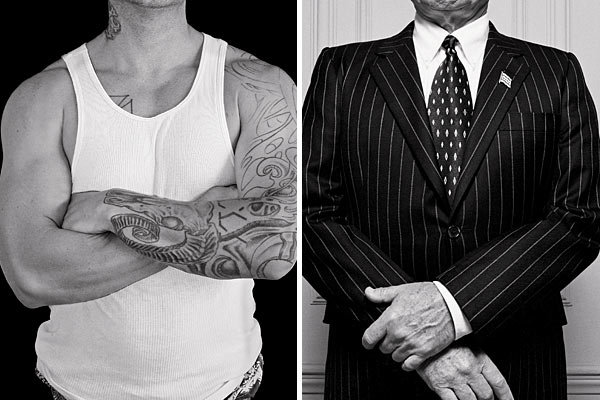From Bloomberg Businessweek, August 19:
Dodge City

The Golden Triangle, the mountainous region where the borders of Laos, Myanmar and Thailand meet, is wild and remote, distant in every sense of the word from the centers of all three countries. Away from the few towns, settlement gives way to small plantations of coffee and bananas and then to thick, steeply graded forest. The main thoroughfare is the Mekong, the silty river that runs from the Tibetan Plateau across Indochina all the way to tropical southern Vietnam.
It’s startling, then, to descend a winding road from the highlands and suddenly see skyscrapers, shopping areas, a casino and an artificial lake, dropped as though by magic onto the Laotian side of the river. Just down the bank, cranes hover over another crop of towers that are advancing toward completion. After dark, thumping electronic beats from buildings illuminated with dancing spotlights and neon accents can be heard across the Mekong in Thailand.
This is the Golden Triangle Special Economic Zone, a vast development project founded by a Chinese businessman named Zhao Wei. Outwardly it resembles a midsize Chinese city; it even has an airport, with a soaring terminal that Zhao hopes will eventually welcome international flights. In interviews and on Chinese social media, he’s said one of his top priorities is to help the Lao people, who are among the poorest in Southeast Asia, “and to provide a bigger contribution to the country’s economic and social development.”
Behind the glassy facades, however, more is going on. The GTSEZ operates as a self-governed enclave, and for the better part of a decade investigators have warned that it’s a hub for criminal activity of every description—a legal no-man’s land. At first, according to the US Department of the Treasury and other agencies that have examined the zone, one of its main businesses was drug trafficking, particularly of methamphetamines. They’re often mixed with caffeine to create cheap pills called yaba or else refined into pricier crystal meth and exported to wealthy countries.
More recently, the GTSEZ has diversified into hosting “scam centers,” where teams of operators, many of them victims of human trafficking, persuade online marks to move their savings into fraudulent crypto-trading schemes. The United Nations Office on Drugs and Crime and other agencies have identified the GTSEZ as a nexus of money laundering as well, connecting criminal groups from Taiwan to Myanmar that use crypto, underground casinos and shadow banking to move ill-gotten gains. “It’s a multifunctional criminal enterprise,” says Richard Horsey, a senior adviser to the International Crisis Group who has studied the zone. “The GTSEZ business model is to provide the infrastructure. They create that ecosystem so that criminal businesses can come in, lease the premises they need, hire the armed security they need and get whatever they want.”
The GTSEZ’s management didn’t respond to a detailed request for comment from Zhao. He’s said in the past that drugs and drug trafficking are prohibited in the zone and that “we definitely do not allow scamming” or human trafficking. Suggestions that he’s involved in criminal enterprise, he told Thai media last year, stem from “the issue of the US trying to contain China.” He hasn’t been charged with any crime.
Even as the GTSEZ grows in plain sight, law enforcement agencies can do practically nothing to police it. In 2018 the Treasury Department imposed sanctions on what it called the Zhao Wei Transnational Criminal Organization, which it said engages in “drug trafficking, human trafficking, money laundering, bribery, and wildlife trafficking.” But those sanctions have had no obvious impact on the GTSEZ’s expansion. Moreover, any move by the US or another country to initiate a prosecution would be complicated by the apparent disinterest of Laos’ leaders, who’ve never taken action against Zhao. In fact, the nominally socialist Laotian government, which has close ties to China, is one of his business partners: The state received a 20% stake in the GTSEZ after he was granted the right to develop it in 2007....
....MUCH MORE
If interested see also Chicago Magazine, December 13, 2011: